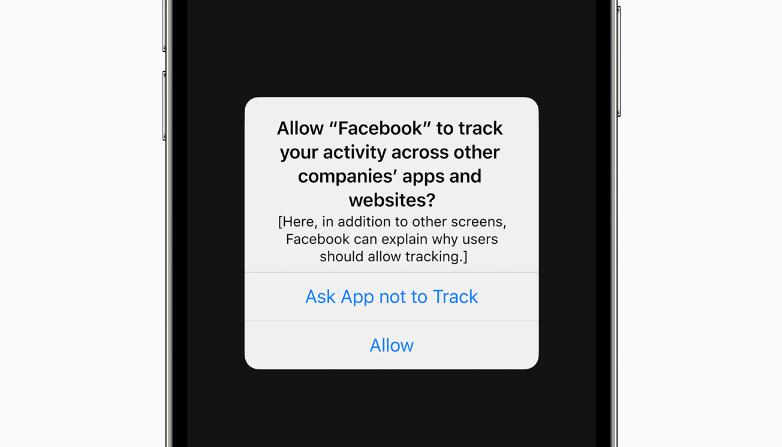Facebook and Apple are currently engaged in a fierce battle that might determine the future of digital marketing. Their recent war of words — taking place from boardrooms to tech conferences — revolves around a proposed update to the iPhone’s operating system. In its next upgrade, Apple plans to offer consumers unprecedented transparency and control over the data that has been, often subversively, extracted from their devices by the apps of its competitors.
Facebook has responded with fury, threatening litigation and contending that Apple’s plans are monopolistic, seriously putting their business model at risk, along with those of the many small businesses that rely on Facebook’s services. In turn, Apple’s CEO Tim Cook has responded with an ethical declaration: “We can no longer turn a blind eye to a theory of technology that says all engagement is good engagement,” he said. A company which sees things this way, he claims, “does not deserve our praise, it deserves reform.”
Advertising is at the center of this trillion-dollar debate, one of the major cultural and economic transformations brought about by COVID-19, and one that could take us down two divergent paths. The question we are presented with at this crossroads is simple: Will the future of advertising involve more data and invasive, AI-driven digital marketing, or will it involve a greater consideration for consumer privacy and creative, human-to-human branding?

It’s no secret that the average American’s screen time has been on the rise throughout the pandemic, and that tech giants have reaped the benefits in a big way. Platforms driven by advertising — such as Google, Facebook, Instagram, and Twitter — depend on convincing businesses that targeted digital advertising, based on the collection of personal data, can be effective for marketers while improving the quality of life of consumers through personalization.
Scott Galloway, professor at New York University’s Stern School of Business, has even predicted that we are on the verge of entering the “post-brand” era. Here, AI and data will overshadow traditional marketing, creating a product-based digital economy where machine learning and digital targeting effectively deliver services and goods to consumers — with marketers and consumers having little say in what they market, or buy.
Concerns surrounding this vision of the future have erupted from all corners of the media. Last year, the original Netflix documentary The Social Dilemma brought an inside look into the data-gathering practices of major social media platforms, opening the eyes of many to the lack of transparency in social media. For marketers, 2020 was the year in which digital advertising fraud became an area of increasing concern as advertisers rushed to reach consumers at home. More recently, Adam Curtis, an English documentary filmmaker and social critic, sparked a conversation by questioning the hype around AI-driven marketing in an interview:
“The tech AI people are in the midst of a massive PR drive to persuade us that really we are no more than simple machines – which means we will agree humbly to be fitted into their machine decision trees,” he said. According to Curtis, digital platforms only know a sliver of our true personalities, and have inauthentically reduced us to broad categories based on what we shop for.
Curtis’ words stem from a serious concern over the state of the digital media environment — a place that is today rife with conspiracies and misinformation, and which has simplistically categorized individuals for digital advertising purposes. What’s missing, according to Curtis, is an understanding of true human potential, intelligence, creativity, and individual choice, which cannot be quantified by ad-tech.
“What I’m saying is that human beings have been reduced to a very simplified version of themselves, which they’ve accepted, in order to fit into this machine model, both of society and the internet,” Curtis proclaimed. “But we are extraordinary and we can do extraordinary things.”
Could the decision-making process of today’s consumers — which is based on personal research and exposure to advertising, from Times Square to YouTube — be replaced by a delivery of products and services managed by an algorithm that infallibly meets supply and demand? We don’t think so. So far, brands that have stood the test of time have done so by creating unforgettable campaigns, building community, and, more recently, by securing the loyalty of consumers with corporate social responsibility programs — complex, emphatic, and long-term undertakings made by humans, for humans.
We hope an alternative path for digital marketing might emerge from this struggle; a third way that would combine what consumers like about digital advertising — the enhanced discovery process, personalization, and exposure to unexpected products and services — while steering away from creating environments driven by unhealthy habits and digital surveillance. Digital advertising, realigned in this direction, can then leverage creativity to position itself as a cultural and artistic force — as traditional advertising did at the advent of the Creative Revolution in the 60s — earning the loyalty and trust of consumers once again.